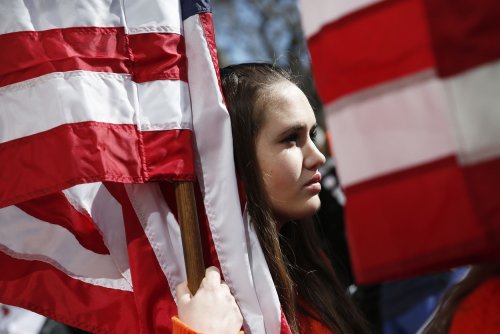ISLAMABAD, Pakistan, July 9 (UPI NEXT) --
The attack that killed 10 foreign mountain climbers in Pakistan last month has frightened foreign climbers, sending around 100 packing for home and leading others to cancel planned trips, interviews with tourists and tour industry sources indicate.
On June 23 the mountain climbers, along with a Pakistani guide and a cook, were killed in the base camp of Nanga Parbat, the highest mountains in the scenic Himalayan valley of Bunar Das in the self-governing territory of Gilgit-Baltistan. The militant group Tehreek-e-Taliban Pakistan has claimed responsibility, calling the attack revenge for the May 29 killing of TTP chief Waliur Rehman Mehsud in a U.S. drone attack near the Afghan border and a protest against the drones.
"I am still thinking, should I go for mountain climbing or not," an Australian climber said, speaking on condition of anonymity, who landed in Islamabad the day after the killings, "whereas my guide is advising me to change the route and go for a safer place."
"Like me," he added, "foreign tourists are here in Pakistan after spending lots of money. That's why there some are still here and waiting for the right time to take a decision."
An American mountain climber who would not give his name or location for security reasons said 21 members of his group planned to return home.
"All of them are afraid to go forward," he said. "They are receiving calls from their relatives, who are forcing them to come back home."
Foreigners in Pakistan have been targeted many times. In 2002, 11 French engineers and technicians were killed in Karachi. The Sri Lankan cricket team was attacked in Lahore in 2009, but all survived.
Samina Baig, the first Pakistani woman to scale Mount Everest, said the killings were a very sad incident, and embarrassing for every Pakistani.
"Being a mountaineer, these foreign mountaineers are my family members," she said, "and it was really sad and shocking news for me."
Pakistan is already facing a hard time, she said, and foreign tourists do not trust the country enough to visit because of security concerns. Now, she said, she fears no one will come to Pakistan to climb mountains.
"If the Pakistani government wants to get the confidence of foreign mountain climbers, then they have to make an example and punish the culprits," she said.
Mirza Ali, a mountaineering guide, said the foreign mountain climbers came to discover nature and enjoy the mountains. "They were so innocent but unfortunately became victims of terrorism," he said. "After this incident, I have received four e-mails for the cancellation of expeditions."
A Dutch mountaineer who gave his name only as Boudewijn, and who had planned an expedition with Ali, said by e-mail, "I was preparing to visit Pakistan in this season for mountaineering, but now after this sad event I have canceled my trip. Security of foreign tourists is now one of the big issues in Pakistan."
Tourism is the main source of income in Gilgit-Baltistan, said Naiknam Karim, general secretary of the Pakistan Association of Tour Operators, but now hotels and tourist guides will face huge financial losses.
"An average mountain climber contributes $8,000 to $10,000 into the local economy during his visit to Gilgit-Baltistan," he said. That means the region would lose at least $800,000 if 100 mountain climbers went home.
Gilgit-Baltistan was a peaceful place, Karim added, but this incident has ruined everything. "I have also received cancelation of trips by e-mail and telephone," added Ali, who also runs a travel business.
Climbers contribute to the local economy by paying for hotels, food and activities. They create jobs for cooks and others, many of whom will now fail to earn money this season.
Mansoor Hussain, president of the Alpine Club of Pakistan, said that an average of 200 expeditions visited Pakistan annually before the 9/11 attacks on the United States, but now there are only 50 to 60 because of security concerns.
He said last month's killings had effectively ended this mountain climbing season in Pakistan. Few mountain climbers were already visiting the country because of security issues, he said.
Hussain said around 40 expeditions, averaging 25 to 30 climbers each, were still in Pakistan, thinking about mountain climbing in safe places. Although some were planning to go home, he said, others were still committed to enjoying the mountains and achieving their goal.
Ghulam Mohammad, owner of Blue Sky Treks and Tours, guided five of the mountain climbers killed at the base camp. "After this sad incident, I didn't sleep for two days," he said. "I have met with the relatives of the victims as well. All of them are demanding that government should punish the culprits." He said the attack had damaged Pakistan's image.
He said some local tour guides had been arrested in the investigation, which has created uncertainly among the guides.
Taifoor Shah, a local political leader in Gilgit, the territory's capital, said all the residents of Gilgit-Baltistan strongly condemn the killings.
"This sad event has defamed Pakistan in the international community," he said. "That's why now foreigners are afraid to visit this area and have canceled their trips and are going back to their countries."
He said local people do not support the Taliban ideology and are condemning the killings.
"Gilgit is peaceful area," he said, "and its people still want the tourists to visit this area, as tourists are their main source of income."
Another local political leader, Siddiq Akbar, said locals have staged a protest and urged government authorities to take notice of killings.
"This is the worst incident in the history of Gilgit-Baltistan," he said, "and everyone is sad and expressing solidarity with the families of the victims."
"Now," he added, "it is the responsibility of the government to take strong action and punish the culprits as soon as possible, and also provide security to foreigners who are still here in Pakistan for mountain climbing in other parts of the country."














